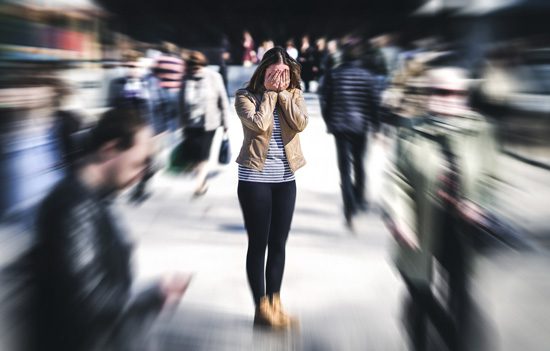It’s probably safe to say that most people associate anxiety with negative feelings and outcomes. While it can be a driving force in helping us to make deadlines, achieve goals, and do important things carefully, anxiety can also become problematic, interfering in our ability to function or impeding our happiness. Approximately 19 percent of American adults struggle with some form of anxiety disorder, according to The National Alliance on Mental Illness (NAMI).
5 Types of Anxiety Disorders
The US Health and Human Services Website describes 5 primary types of anxiety disorders:
1. Generalized Anxiety Disorder (GAD) – A person with this condition seems to always experience stress and worry, even when there is seemingly little or no reason for it. The National Institutes of Mental Health lists the following symptoms of GAD:
- Restlessness
- Fatigue
- Difficulty concentrating
- Irritability
- Muscle tension
- Overwhelming worry
- Sleep disruptions
2. Obsessive Compulsive Disorder (OCD) – People who struggle with this condition often experience intrusive thoughts or repetitive behaviors. They may perform “rituals,” like repeatedly checking that their stove is off or their door is locked, or they may obsessively count objects.
3. Panic Disorder – This disorder is characterized by unexpected and intense fears, often accompanied by:
- Accelerated heart rate
- Shaking
- Difficulty breathing
- Feelings of impending doom
- Feelings of being out of control
- Sweating
4. Post-Traumatic Stress Disorder (PTSD) – This condition is frequently associated with soldiers but can be experienced by any person who has lived through intense trauma, including military combat, abuse, natural disasters, and accidents.
5. Social Anxiety Disorder – People with this disorder have intense fear or worry about public speaking, being in large groups, being around unfamiliar people, or other common social experiences.
Causes of Anxiety Disorders
Anxiety disorders seem to be caused by a mixture of genetics and environment. Some studies provide evidence suggesting that anxiety can run in families. The situations a person experiences and the environmental factors they face can also fuel anxiety. People who have a buildup of stress in their daily lives, whether from illness, financial difficulty, or relationship conflicts are more likely to develop an anxiety disorder. People with a history of trauma, other mental health disorders, or substance use are also at a higher risk of anxiety disorders.
Treatment Options
There are a couple of options for treating anxiety disorders. The Mayo Clinic suggests the following:
- Cognitive Behavioral Therapy (CBT) – CBT is a type of talk therapy that focuses on teaching coping skills in the short-term and then gradually increasing a person’s exposure to their anxiety triggers to help them practice their skills.
- Medications – Most commonly, antidepressants or anti-anxiety medications are used to treat anxiety disorders; however, there are also times when sedatives might be used.
- Support groups and stress management techniques might also be helpful, according to the National Institute of Mental Health.
Substance Abuse and Anxiety
It is not uncommon for people with anxiety to try to self-medicate their symptoms with alcohol or other drugs. If a person with a mental health diagnosis also struggles with addiction, this is called “co-occurring diagnosis” or “dual diagnosis.” A co-occurring diagnosis is best treated in tandem, as the anxiety can be difficult to separate from the substance use. It is important that a person who struggles with both anxiety and substance abuse disclose both conditions to their treatment providers to ensure that treatments used to treat anxiety don’t further trigger substance use.
High-Functioning Anxiety
If you recognize symptoms of these anxiety disorders in yourself but have always managed to push through, you might be dealing with high-functioning anxiety. High-functioning anxiety is not a clinical diagnosis; however, it is understood that some people experience more than the “typical” or “usual” amount of anxiety, yet still manage to navigate daily life. These people may be adept at hiding their struggles or coping with their anxiety to the point that others don’t even realize that they experience anxiety beyond the norm. If this is the case, you might not qualify for a diagnosis but could still benefit from learning techniques to manage anxious feelings you experience.
Diagnosis
As with any mental health diagnosis, only a qualified professional can make a diagnosis of anxiety disorder. This is typically done by utilizing the Diagnostic and Statistical Manual of Mental Disorders (DSM) and may also involve ruling out medical causes for the symptoms.
When to Seek Professional Treatment
The Mayo Clinic recommends seeking treatment for anxiety if:
- Your worry interferes with your work, relationships, or daily life.
- You feel like your anxiety is out of control.
- You also feel depressed and/or are excessively using alcohol or drugs.
- You think your anxious feelings are the result of a physical health problem.
- You’re feeling suicidal. If this is the case, call the National Suicide Prevention Lifeline at 1-800-273-8255.










